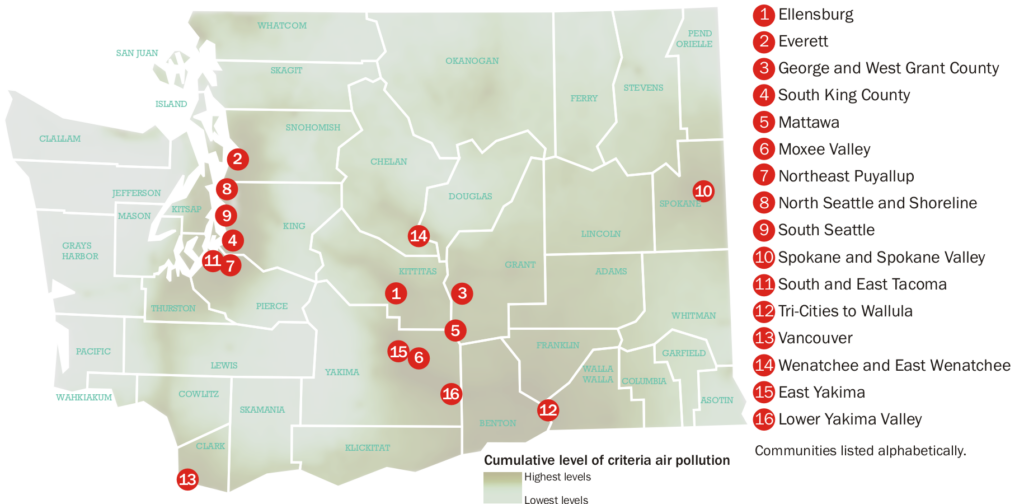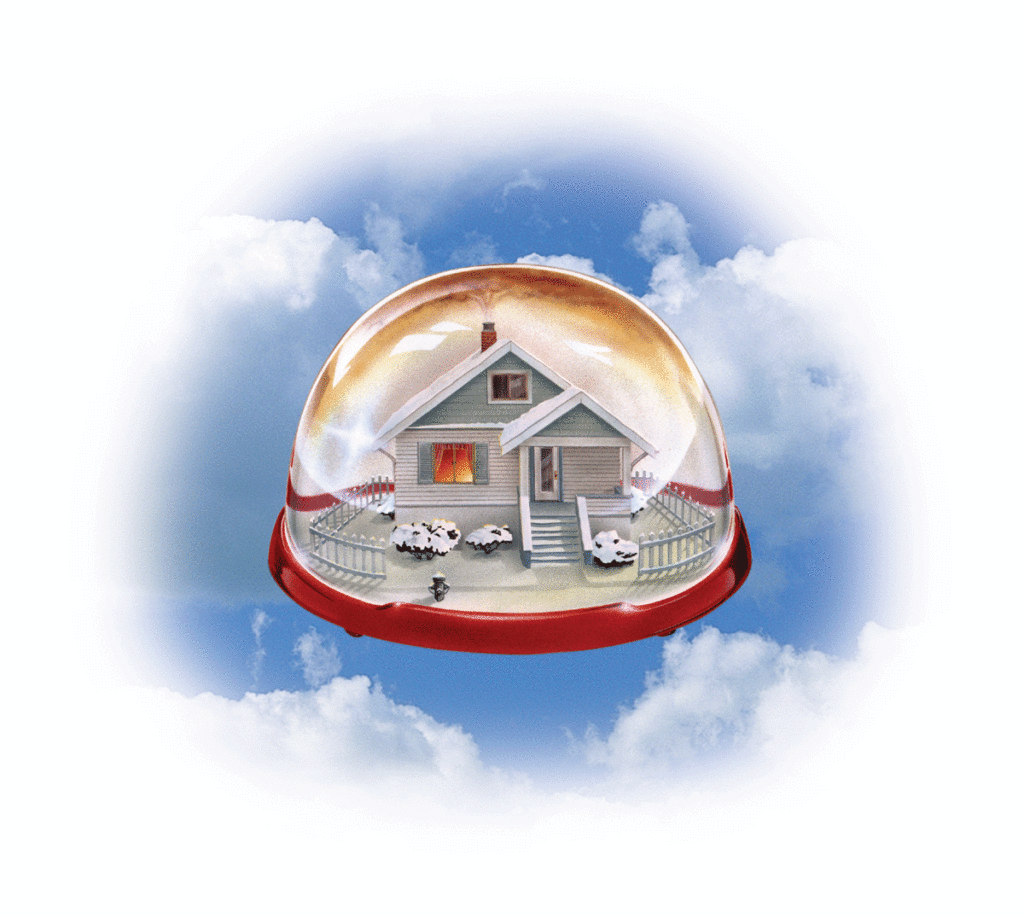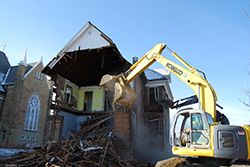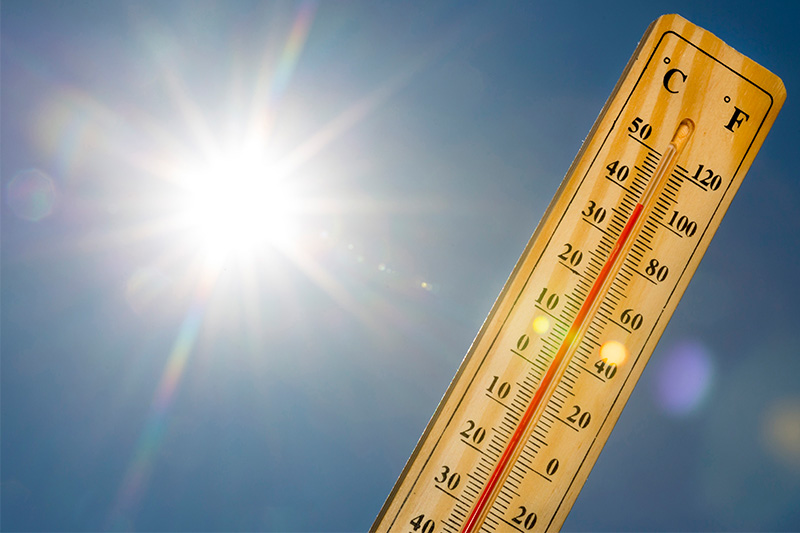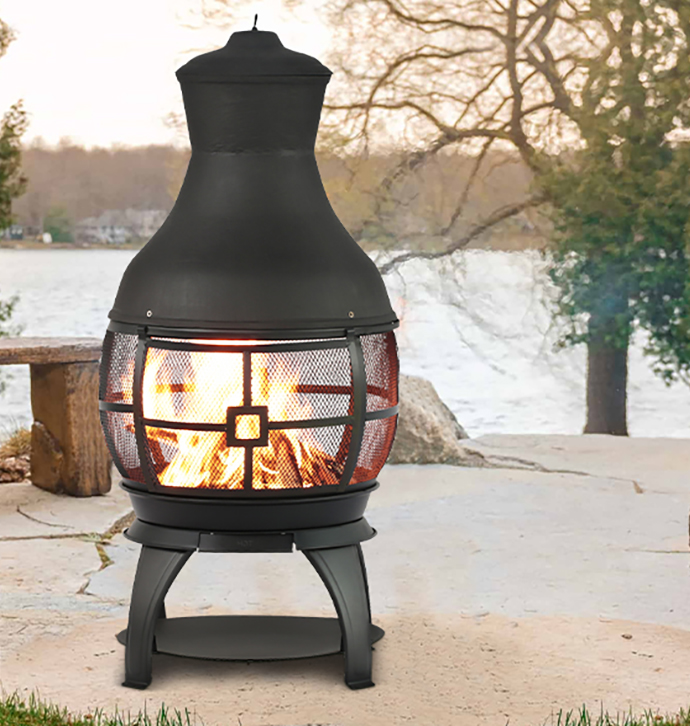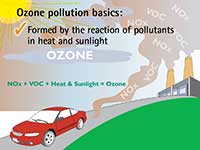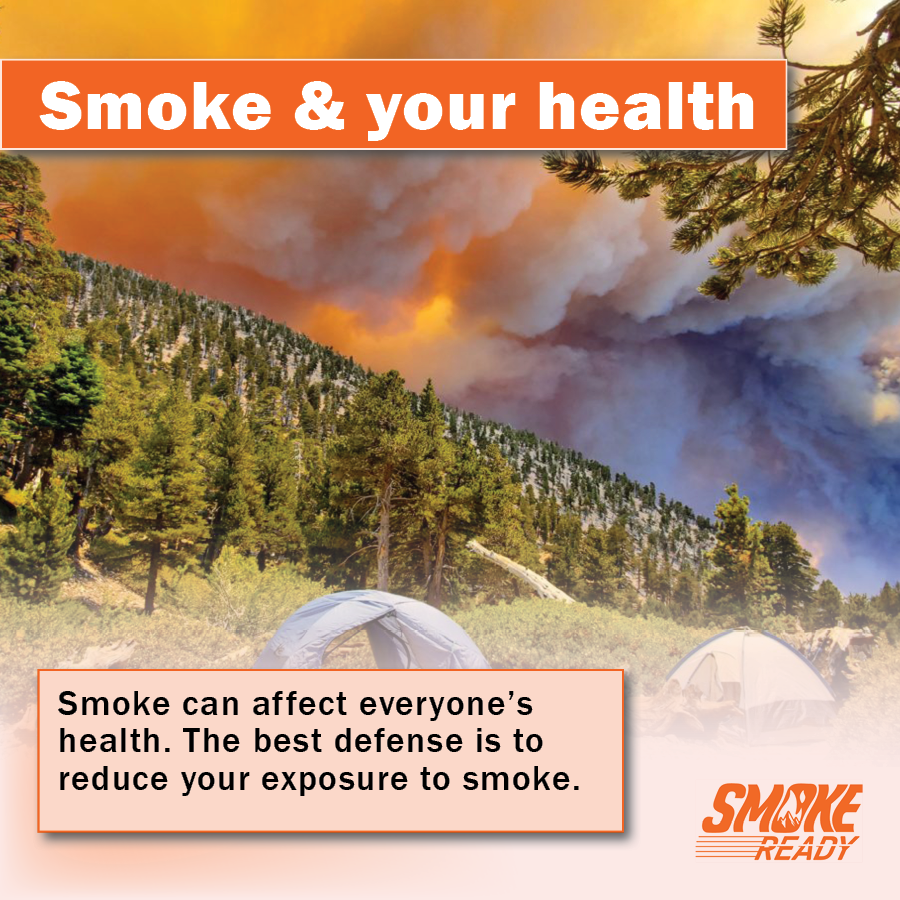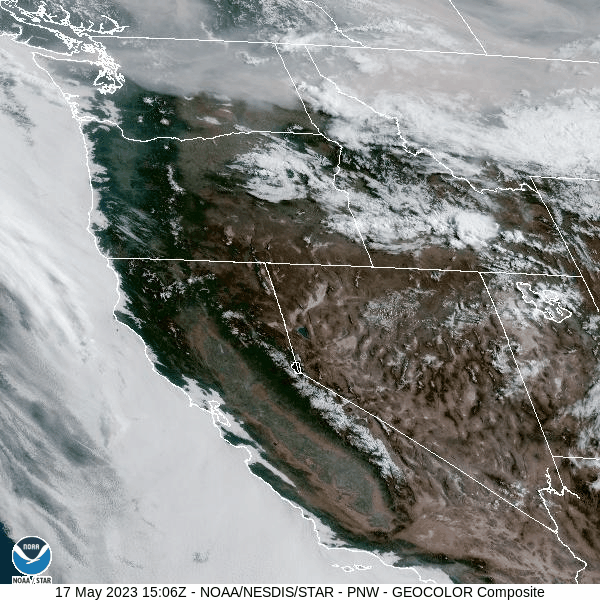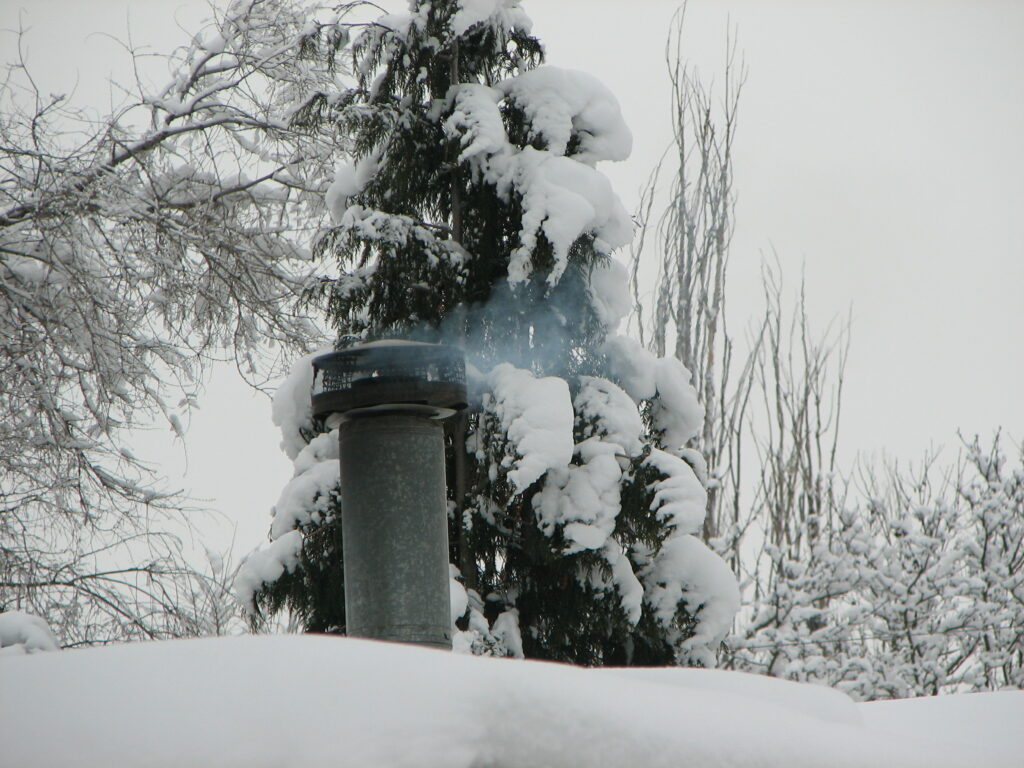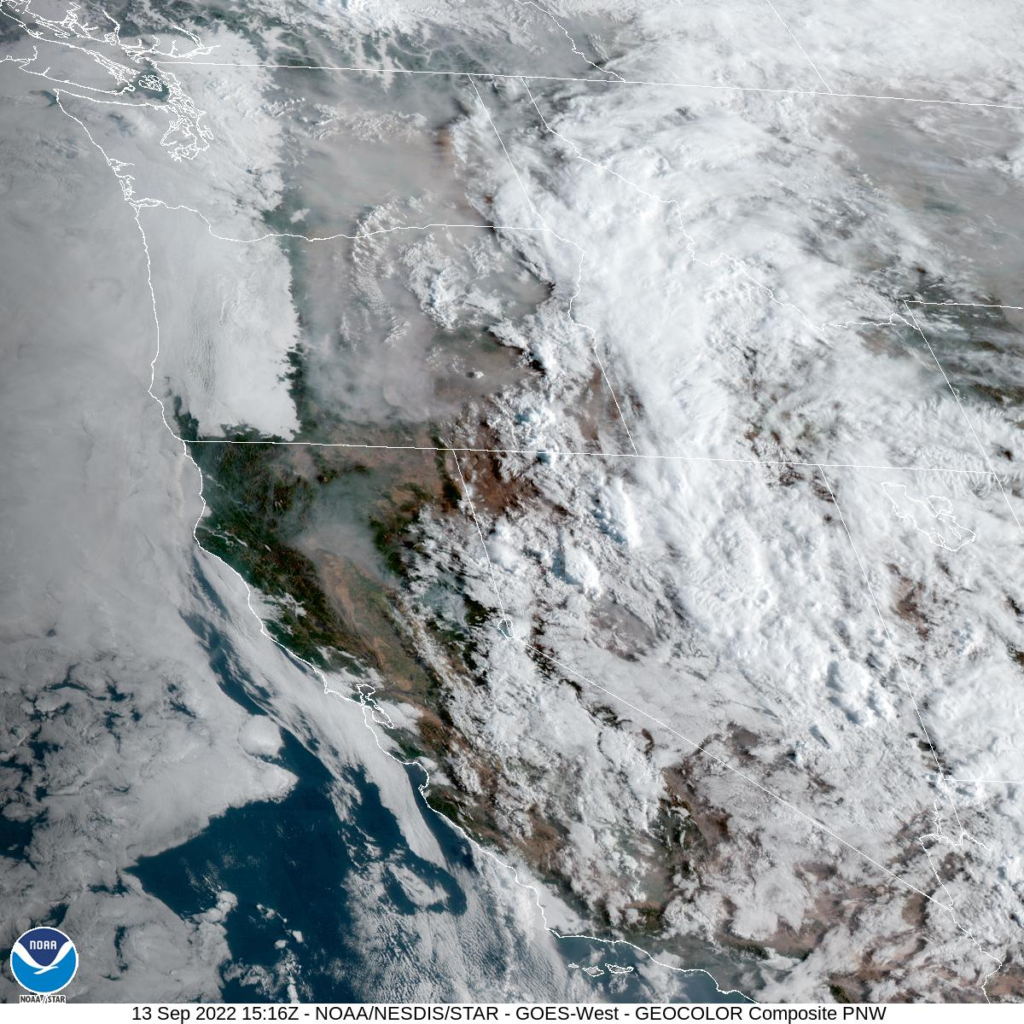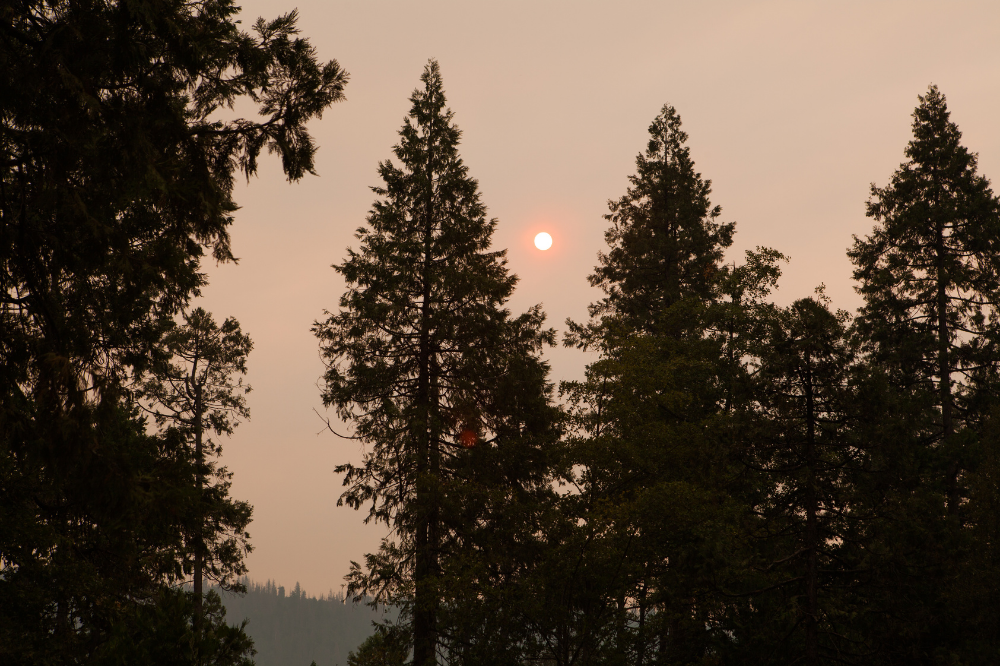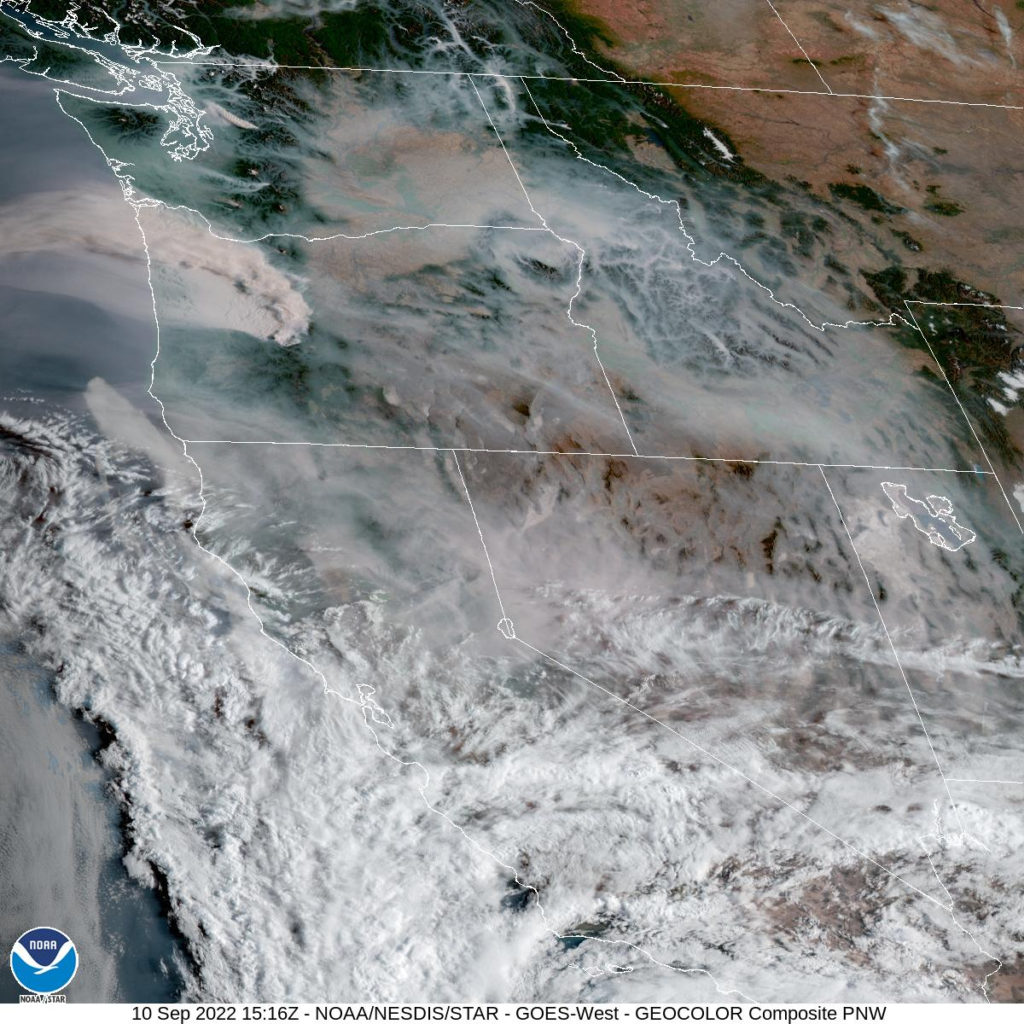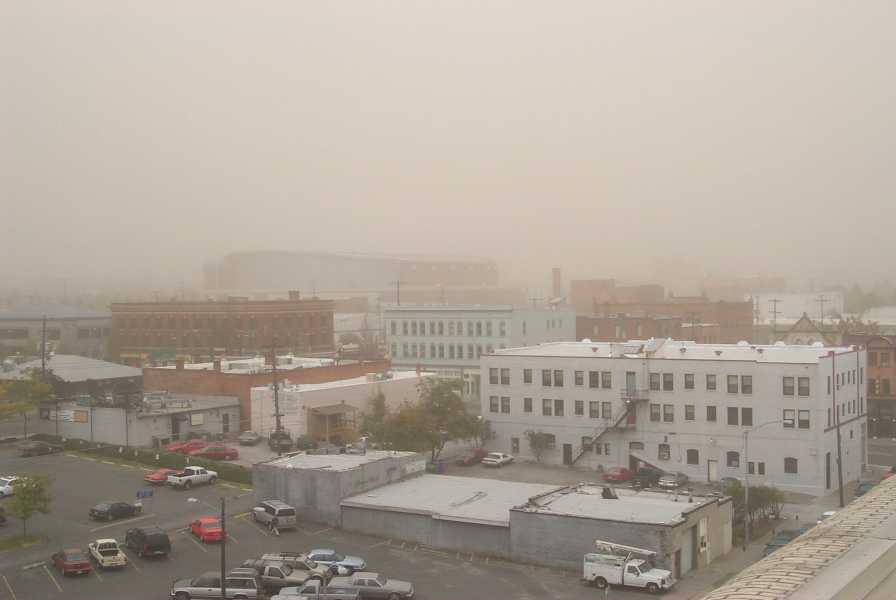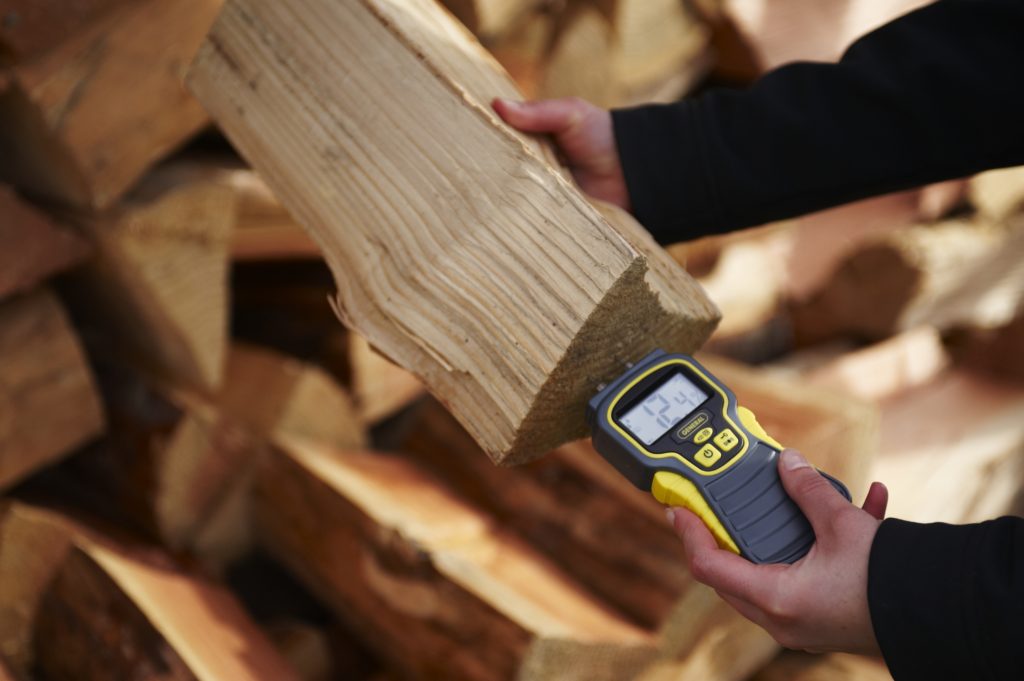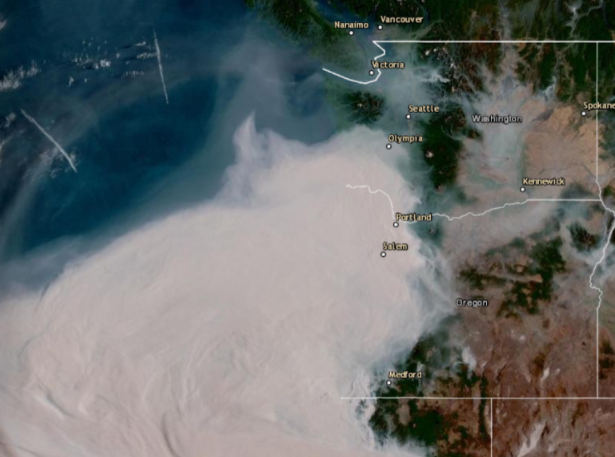
With every breath we take, our lungs are exposed to the world around us, filtering over 11,000 liters of air each day. We know that healthy air is important to everyone.
This week, May 3-7, Spokane Clean Air and environmental agencies across the country are observing Air Quality Awareness Week. The goal of this week is to help our communities learn about air pollution and understand what they can do to protect the air and their health.
Follow along on Facebook, Twitter and Instagram as we explore daily air quality topics.
“You cannot get through a single day without having an impact on the world around you. What you do makes a difference, and you have to decide what kind of difference you want to make.”
-Jane Goodall
Air pollutants of most concern
In Spokane, there are two ambient air pollutants of primary concern: Particulate Matter (PM) and Ground-level Ozone (Ozone).
Particulate Matter (PM) is mostly comprised of smoke and dust, depending on the size.
- Fine particles (PM2.5) are 2.5 microns in diameter and smaller. These microscopic particles come mostly from combustion.
- Coarse particles (PM10) are 10 microns in diameter and smaller, so they include larger particles such as dust.
Ground-level ozone is formed as a result of photo-chemical reactions between nitrogen oxides and volatile organic compounds in the presence of sunlight and heat. Ozone is only a concern during the hot, summer months when levels can pose a health concern.
Air pollution and your health
Even healthy people can be affected by air pollution. However, those with heart or lung diseases, children, and older adults are particularly vulnerable.
Numerous scientific studies have linked particle pollution exposure to a variety of problems, including:
- premature death in people with heart or lung disease
- nonfatal heart attacks
- irregular heartbeat
- aggravated asthma
- decreased lung function
- increased respiratory symptoms, such as irritation of the airways, coughing or difficulty breathing
Even at low concentrations, ozone causes respiratory problems and aggravates asthma in children. Children are at higher risk from exposure to ozone because they are often active outside during the summer and their lungs are not fully developed. Long-term exposure to ozone may lead to premature aging of the lungs and chronic respiratory illnesses.
We all have a role to play in clean air
Clean air to breathe is vital to our health and our overall well-being. Since most of the air pollution in the Spokane-area comes from our activities, we can make a difference. Whether at home, at work, or somewhere in between, our choices matter.
Choose clean air!


